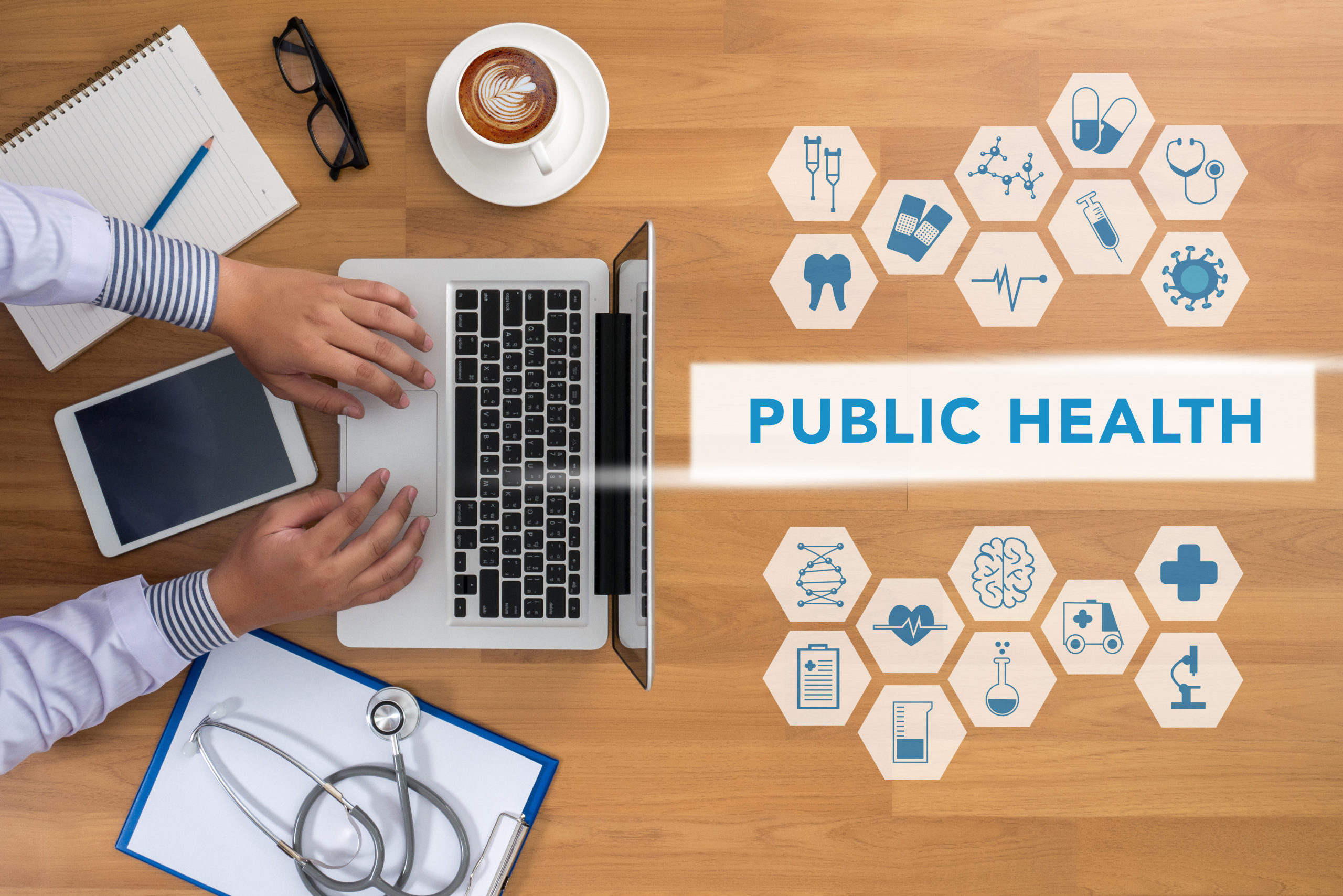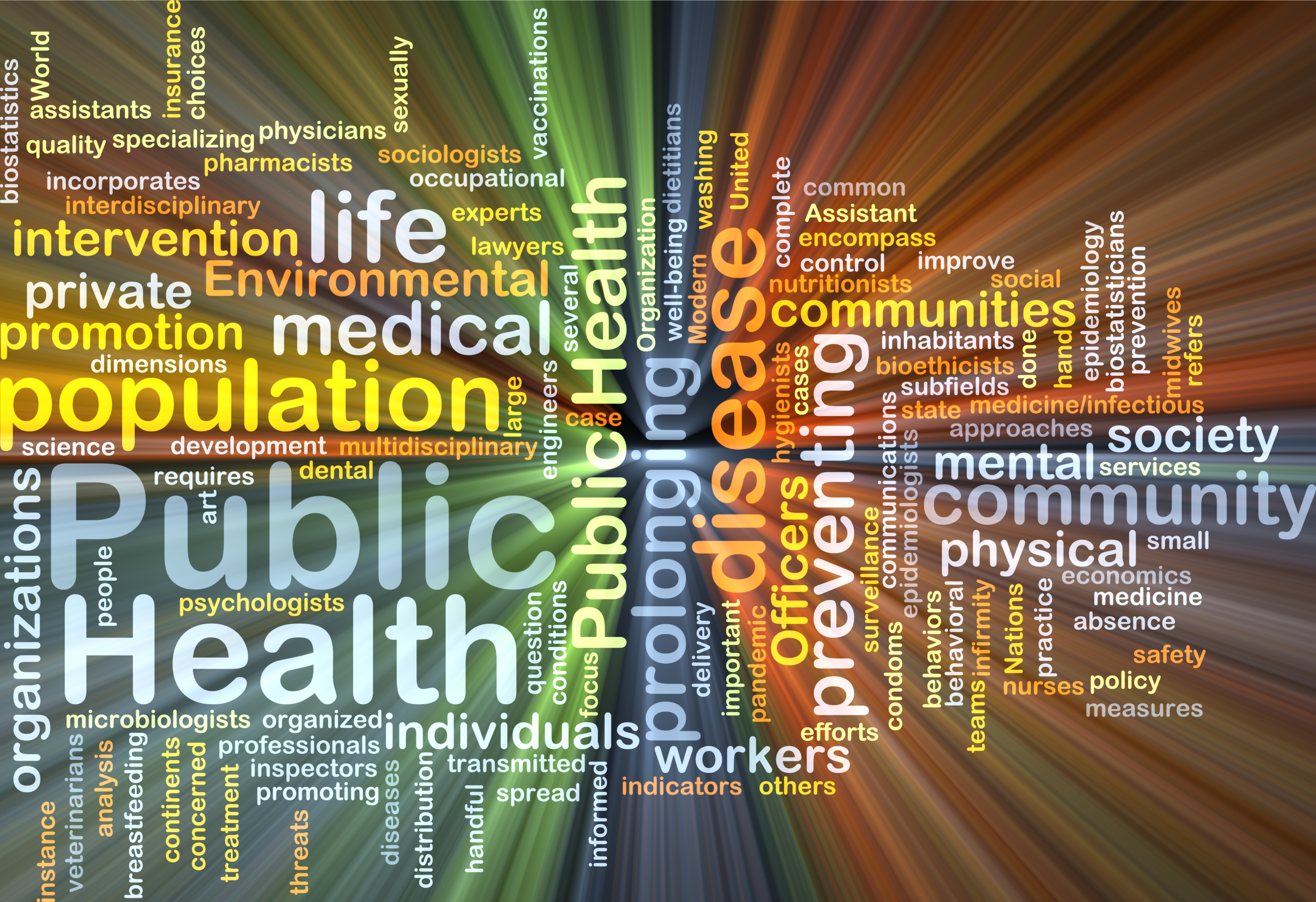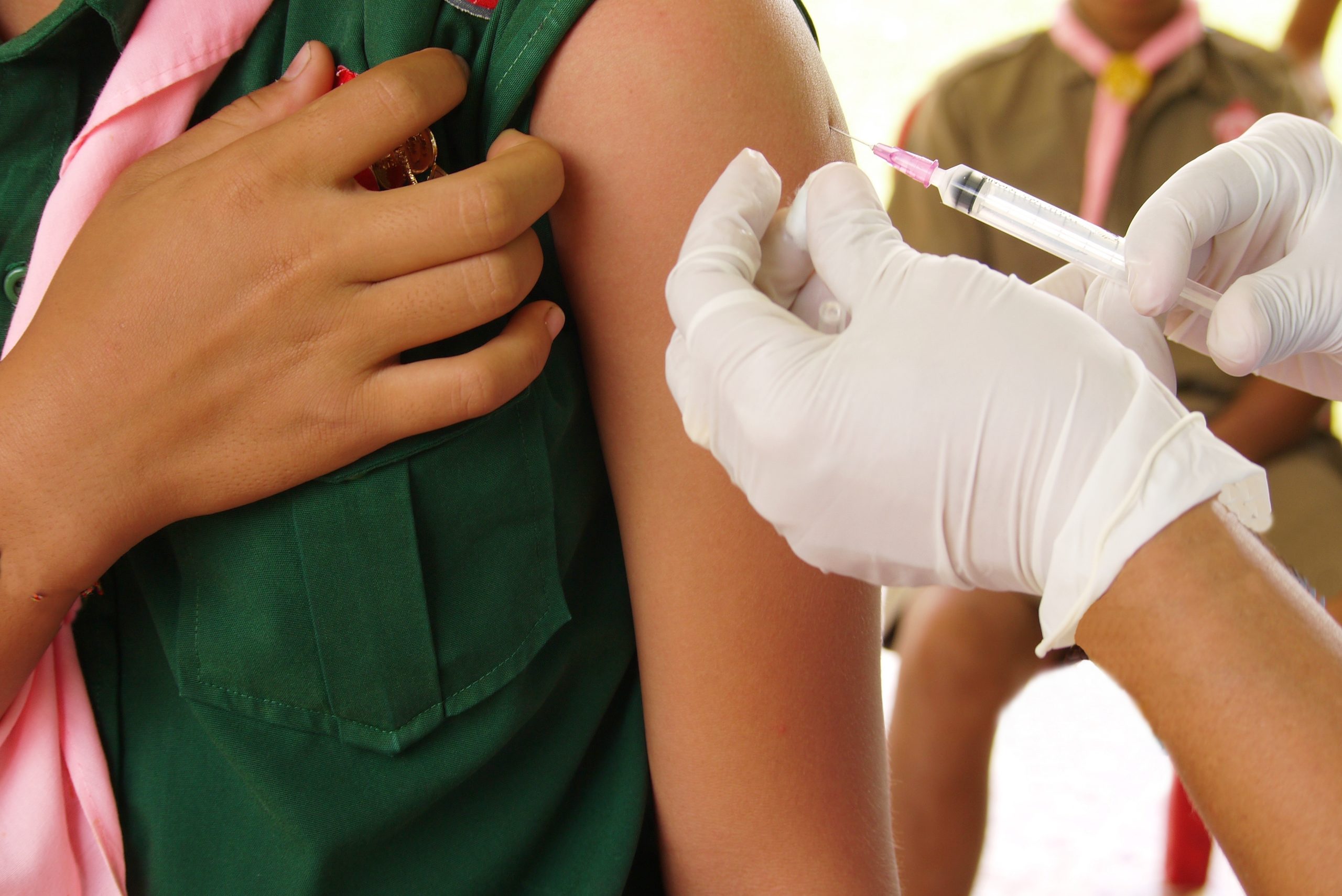Obtaining your Master of Public Health (MPH) can significantly impact your future career opportunities, but what is an MPH, exactly? In this article, we’ll explore the definition of this interdisciplinary degree and how it may impact not just you but the world at large.

Featured MPH Programs
What Is an MPH Degree?
A Master of Public Health degree is a graduate-level program that emphasizes the practical aspects of public health. This type of program is designed to prepare students for their role in promoting community awareness about injury, violence prevention, infectious diseases, and other issues that affect health and safety.
What Does MPH Stand For?
MPH is an abbreviation for Master of Public Health, a professional degree that can only be obtained by first getting your bachelor’s degree. In some countries, only physician graduates can enter an MPH program, but we’re discussing Master Of Public Health programs within colleges in the US for this article.
What Is the Difference Between an MPH, An MS, and an MHA?
The Master of Public Health, Master of Healthcare Administration, and Master of Science degrees are designed to train students for careers in the public health arena. Still, each has different goals, perspectives, and curriculums.
A Master Of Public Health (MPH) degree program prepares students to work in industries, government, or non-profits as public health practitioners. They typically work to raise awareness of best public health care practices and either establish new health programs or evaluate existing ones.
A Master Of Science (MS) program is geared toward students who would rather pursue a career in analysis or research. This degree also paves the way for students to enter a Ph.D. program.
A Master Of Healthcare Administration (MHA) degree is more about the business side of healthcare. Programs are designed to teach students how to manage a team or take on leadership roles in a wide range of healthcare delivery settings.
Heavy research is not usually a primary focus in most MPH programs. Therefore, students desiring careers on the business side of healthcare should consider an MHA degree instead. Those who want to work with medical or financial data rather than the public might be more comfortable in an MS program.
What Are the Academic Requirements for Obtaining an MPH?
The Association of Schools of Public Health (ASPH) requires that accredited MPH programs have the core areas of statistics/biostatistics, epidemiology, environmental health, policy, and behavioral sciences. Although MPH programs can be broad in the variety of topics covered, students gain sufficient knowledge to have brilliant careers in any aspect of public health.
In addition to core areas, students may be required to enroll in courses that cover toxicology, program evaluation, health care administration, and diversity issues.
Since MPH programs are applied degree programs, students are required to engage in work-related activities. This may take the form of an internship or practical experience where the student assumes job functions in the public health field while under supervision.
Many post-secondary institutions offer specialized MPH degree programs, which can provide graduates with better career opportunities. Students may choose a program that gives them specialized training in one of the traditional core areas or more unique specialties such as maternal/child health, public health education, communicable diseases, toxicology, or disaster management.
Are There Different Types of MPH Degrees?

Yes. There are several different types of MPH degrees. This is a vast and growing field, and more colleges than ever before are offering MPH programs, many of which can be taken online. The offerings will vary from school to school, but here are some of the most common concentrations.
Master Of Public Health – Epidemiology or Infectious Disease
This specialty focuses on investigating patterns or injury or disease in the population. Through community education, health policy, and research, professionals in this field attempt to intervene to decrease the occurrence of outbreaks and other adverse health experiences. The curriculum is usually designed around biology and public policy. Classes may include:
- Biostatistics
- Epidemiology Methods
- Systems of Public Health
- Social and Behavioral Sciences
- Epidemiology
- Occupational Health
- Environmental Health
- Behavioral and Social Sciences Applied to Health
Master Of Public Health – Biostatistics
This concentration is not unlike an MPH degree in Epidemiology. However, instead of working directly with the public, professionals with an MPH in biostatistics are more likely to be applying foundational mathematics and statistical theory in the public health field. Biostatisticians use the accumulated data to identify causes of diseases and trends within communities. Some course you can expect to take include:
- Public Health Computing
- Epidemiology Research Methods
- Applied Survival Analysis
- Applied Regression Analysis
- Environmental Epidemiology
- Social and Behavioral Foundations of Health
- Public Health Toxicology
- Fundamentals of Clinical Trials
Master Of Public Health – Environmental Health
An Environmental Health MPH will prepare you for solving public health issues by identifying and analyzing problems in the environment that could impact public health. Rather than focus on the public itself, it encompasses overall environmental health. Professionals in this field seek to provide better health by improving or maintaining the integrity of specific environments. Students can expect to study:
- Environmental Toxicology
- Public Health Policy and Administration
- Foundations of Epidemiology
- Biostatistics for the Health Professional
- Environmental Risk Assessment
- Community Health Research and Education
- Risk Assessment
- Environmental and Occupational Health
Master Of Public Health – Health Education
Leadership and education are the hallmarks of an MPH degree in health education. Teachers and instructors are needed in the field to spread knowledge about disease control and safety. Those who choose this specialty will be most effective if they have a broad, overall understanding of public health and can communicate well. Organizations in the public health sector need educators who can train others on new topics and procedures. Some of the required coursework for these students might include:
- Global Health Communication Interventions
- Public Health Problem-Solving
- Population Dynamics and Public Health
- Environmental Health
- Preventing Health Disparities
- Marketing and Research for Public Health
- Social Marketing
- Management Sciences
- Public Health Policy
Master Of Public Health – Public Health Policy and Writing
Students who have a flair for media and the written word may want to consider an MPH in Public Health Policy and Writing. One of the primary objectives of public health is to communicate information about disease and illness prevention effectively. Writers can spread this knowledge via digital content, magazines, newspapers, and other media. You can expect to take a broad range of courses in this specialization, including:
- Policy and Politics of Health
- Health Economics and Analysis
- Public Health Research Methods
- Healthcare Leadership and Communications
- Introduction to Health Systems
- Biostatistics
- Health Law and Ethics
- Foundations of Epidemiology
- Environmental Health
- Health Behavior
Featured Programs in Public Health
Upon concluding any of these programs, students typically will need to participate in written exams based on case studies, internships, local community field experience to apply what has been learned, or other capstone projects.
Additionally, some programs may require students to participate in a small, semester-long project such as a research paper or grant proposal that shows their competence in the field.
Some programs require students to choose a specific track or emphasis area for completion of the program. Although the degree itself is not a true specialized degree, the three to five courses required for the emphasis area can provide students with more specific knowledge about an area of interest.
How Long Does It Take To Get a Master Of Public Health Degree?
Most MPH programs are designed to be completed in two to three years and may not have a thesis requirement. Some schools offer the option for an advanced, one-year program. However, these programs are typically geared toward students who are concurrently pursuing another graduate degree in a related field. These are referred to as dual-degree or joint-degree programs. One-year programs that do not require concurrent enrollment in another program are terminal degrees that do not require a thesis. An increasing number of schools offer their programs entirely online or in a hybrid on-campus and online method. See our ranking of the best online MPH programs for more information.
What Can You Do With a Master Of Public Health?

Graduation from an MPH program affords students a variety of career choices. Most graduates find employment opportunities in health care settings, non-profit organizations, or government agencies. These settings are especially applicable for graduates that have an emphasis on health care policy, administration, or epidemiology of infectious diseases.
Although the nature of the degree program provides fewer opportunities for research and academic positions, some graduates acquire research positions if they have an emphasis and strong skills in statistics and biostatistics. Below are a few examples of popular career choices in the public health field.
Public Health Educator
Average Annual Salary: $46,910 per year
Public Health educators work to teach communities and individuals how to improve their health with common-sense education on nutrition, disease, exercise, and living a healthy lifestyle. They often implement specific programs based on a particular community’s social and cultural needs and need to be empathetic people who can communicate clearly.
Public Health Administrator
Average Annual Salary: $100,980 per year
A Public Health administrator typically has a management role within an organization that is working to improve the lives and welfare of people. Their leadership helps coordinate public health programs, develop budgets, and make sure everything runs smoothly. It’s a big responsibility that requires diligence and integrity as public health administrators need to set an example for everyone else in the organization.
Epidemiologist
Average Annual Salary: $70,990 per year
Epidemiologists study human diseases and injuries, and their work usually takes place in a lab. By collecting and analyzing data, they can convey information to the public, health professionals, and policymakers about current diseases and help prevent future outbreaks. The main goal of this career is in preventing and eradicating illness and disease.
Medical Records and Health Information Technician
Average Annual Salary: $42,630 per year
Medical Records and Health information technicians work on analyzing, organizing, and reporting health data. They are responsible for ensuring that it is secure, accurate, and accessible and often work within billing departments or in an insurance capacity. They spend a lot of time at a computer completing tasks like coding, categorizing, and tracking patient outcomes.
Clinical Research Coordinator
Average Annual Salary: $88,970 per year
Clinical Research coordinators are responsible for managing research teams for clinical trials. They ensure that all members follow the regulations and guidelines doing the trial, and they are involved in recruiting patients for the study. They may also work on the funding side of things, negotiating budgets for various projects.
Nutritionist or Dietician
Average Annual Salary: $61,270 per year
Responsibilities: Few people realize the vast amount of education that goes into becoming a dietician. Dieticians and nutritionists are genuinely knowledgeable about what they do. They can be found counseling clients on newer, healthier food choices, assessing their nutritional needs, or creating customized meal plans. They work in hospitals, schools, nursing homes, and other institutions and are vital to the healthcare team.
Substance Abuse and Mental Health Counselor
Average Annual Salary: $46,240 per year
Substance abuse is a significant public health concern, as is mental illness. Those who choose to become substance abuse counselors help patients suffering from mental health problems, drug and alcohol addiction, and other problems. They evaluate a patient’s general health and state of mind, recommend treatments, refer them to other services, and often support them one on one just by listening. Although the pay for this position is on the lower side, the intangible rewards may be worth it for people who are passionate about easing human suffering.
Careers With an MPH Degree
Career | Average Salary |
Public Health Educator |
$46,910 per year |
Public Health Administrator |
$100,980 per year |
Epidemiologist |
$70,990 per year |
Health Information Technician |
42,630 per year |
Clinical Research Coordinator |
$88,970 per year |
Nutritionist or Dietician |
$61,270 per year |
Substance Abuse and Mental Health Counselor |
$46,240 per year |
What Are MPH Careers That Are Not Related to Health?
Because this degree has practical applications across a broad range of industries, there are plenty of specialized areas not explicitly focused on health. The skills learned obtaining this degree can be relevant in several other career choices, including:
- Lobbying at the local, state, or national level for policies that improve public health
- Working to ensure clean water access to all
- Regulating foods, drugs, and other consumer goods
- Monitoring and enforcing building codes
- Working in public safety at the municipal level
Closing Thoughts
Students who choose to pursue a career in public health are unsung heroes that can make a real difference in their communities and the world. Most people have no understanding of how public health has impacted the lives of millions globally.
From access to clean water to vaccinations, the world would still be back in the dark ages without public health professionals.
Prospective students might be surprised to discover that this broad field has many applications. Those who choose to embrace it can expect to find fulfilling and meaningful careers and have a significant and long-lasting impact at both the community and global levels.
You may also like: